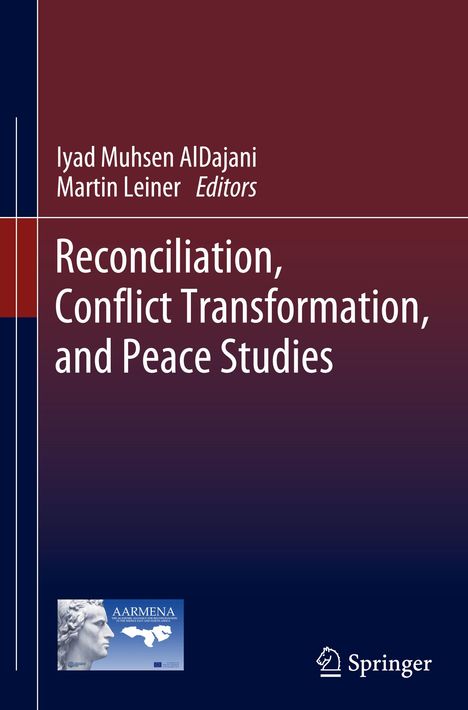Reconciliation, Conflict Transformation, and Peace Studies, Gebunden
Reconciliation, Conflict Transformation, and Peace Studies
(soweit verfügbar beim Lieferanten)
- Herausgeber:
- Martin Leiner, Iyad Muhsen Aldajani
- Verlag:
- Springer Nature Switzerland, 10/2024
- Einband:
- Gebunden, HC runder Rücken kaschiert
- Sprache:
- Englisch
- ISBN-13:
- 9783031478383
- Artikelnummer:
- 11987310
- Umfang:
- 676 Seiten
- Nummer der Auflage:
- 2024
- Ausgabe:
- 2024
- Gewicht:
- 1168 g
- Maße:
- 241 x 160 mm
- Stärke:
- 42 mm
- Erscheinungstermin:
- 2.10.2024
- Hinweis
-
Achtung: Artikel ist nicht in deutscher Sprache!
Klappentext
This book, achieved in cooperation with the Academic Alliance for Reconciliation Studies in the Middle East and North Africa (AARMENA), focuses on peacebuilding, conflict transformation, and shifts toward approaching the reconciliation process as an inter-, trans- and multidisciplinary field. The research presented in the series focuses on the Middle East and North Africa, highlighting contributions by practitioners and scholars alike. The book is divided into five sections: Sections 1: Theoretical and Philosophical Framework Section 2: Digital Humanities on Reconciliation, Conflict Transformation, and Peace Studies Section 3: Research Science on Reconciliation, Conflict Transformation, and Peace Studies Section 4: Practices of Studies on Reconciliation, Conflict Transformation, and Peace Studies Section 5: Cases Studies on Reconciliation, Conflict Transformation, and Peace Studies The book's first part focuses on theories and the philosophical framework for the research on reconciliation, conflict transformation, and peace studies. The second part of the book is dedicated to digital humanities development in the reconciliation and peace education field, its impact on the reconciliation process in societies, and the introduction of Artificial Intelligence in analysis techniques to differentiate and identify research in different domains. The book's third part is dedicated to the research on reconciliation and conflict transformation in different disciplines. The fourth part concentrates on the practices in the field, and the fifth part illustrates case studies on reconciliation, conflict transformation, and peace studies. The target audience is professors, scholars, practitioners, students, and scientists that are experts in the field of Middle East and North Africa.


